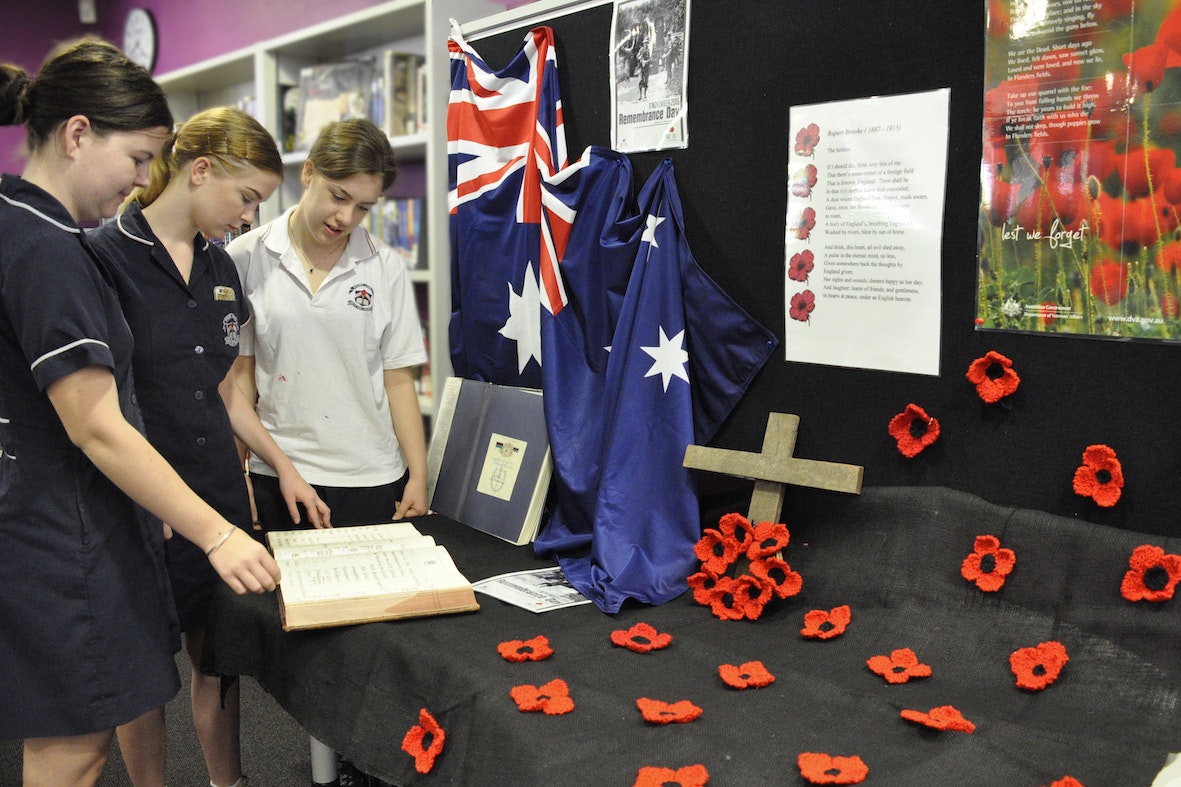Remembrance Day 2015
This Year it is 97 years since the guns on the Western front in France, finally died down, after 4 years of bloody warfare - it was called the War to end all Wars. It was the 11th hour of the 11th day of the 11th month. The Germans had called for an armistice (suspension of fighting) in order to secure a peace settlement. They accepted the allied terms of unconditional surrender.
2015 has been the 100th anniversary of the beginning of the Gallipoli carnage that was to define so many things - our new nation involved in its first war as Australia; the forging of a unison with New Zealand that has lasted through many turmoils; and a belief in our own ability and place in the world. It was a period that defined men and women answering the call to maintain liberty in a democratic world without fear of subjugation by a stronger nation. They departed Australian shores on 1st November 1914 to travel to Egypt for regrouping and training before engagement with a new enemy - unknown and untried. Gallipoli became "Our Baptism By Fire". Many never came home, many saw the end of the plight 97 Years ago today. But what did we learn?
The eleventh hour of the eleventh day of the eleventh month attained a special significance in the post-war years, as the day to remember the sacrifices made by so many. This became universally associated with the remembrance of those who had died in war. This war mobilised over 70 million people and left nearly 13 million dead, with as many as one-third of them with no known grave. Over 60,000 Australians died as a result of the conflict on the other-side of the world, so many never to return to home shores. In Australia on the 75th anniversary of the armistice, 11 November 1993, the remains of an Australian soldier, exhumed from a First World War military cemetery in France, were ceremonially entombed in the Australian War Memorial in Canberra. This is "The Unknown Soldier". He represents so many who never returned. We learnt to remember.
The war showed men at their best enduring the worst - from all nations. Colonel John McCrae, a Canadian doctor in WW1 fighting in Ypres, Flanders, was the first to describe the red poppy, the Flanders' poppy, as the flower of remembrance. It had bloomed in the churned, bombed fields. He wrote - "Flanders' Field" which described the poppies that marked the graves of soldiers killed fighting for their country.
In Flanders' Fields
In Flanders' Fields the poppies blow
Between the crosses, row on row,
That mark our place; and in the sky
The larks, still bravely singing, fly
Scarce heard amid the guns below.
We are the dead. Short days ago
We lived, felt dawn, saw sunset glow,
Loved, and were loved, and now we lie
In Flanders' Fields.
Take up our quarrel with the foe:
To you from failing hands we throw
The torch; be yours to hold it high.
If ye break faith with us who die
We shall not sleep, though poppies grow
In Flanders' Fields.
The doctor died in Flanders Field in 1918. He is immortalised by the poem and poppy.
On the first anniversary of the armistice, 1919, the two minutes' silence was instituted as part of the main commemorative ceremony at the new Cenotaph in London. The silence was proposed by an Australian journalist, working in Fleet Street - Edward Honey. Then King George V personally requested all the people of the British Empire to suspend normal activities for two minutes on the hour of the armistice, it was popularly adopted and it became a central feature of commemorations on Armistice Day, as did the poppy. We learned to reflect and respect.
These ANZAC men were brothers in arms, some after adventure, with torrid experiences, showing courage, loyalty, mateship and above all self-sacrifice. Today we remember them and acknowledge their sacrifice.
We reflect in peace, engage in peace keeping, acknowledging they carry on the legacy in the hope that we learnt - it was "The War to end All Wars".
